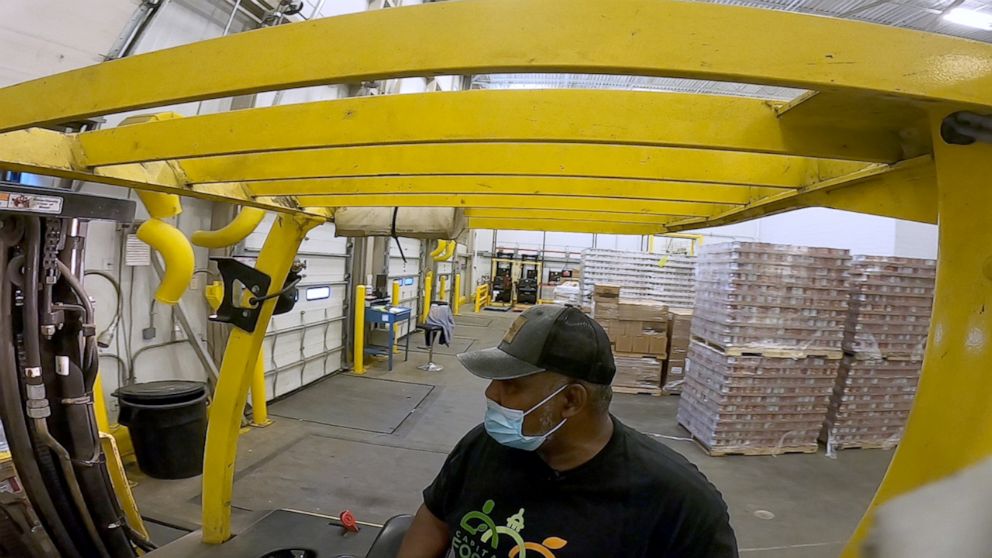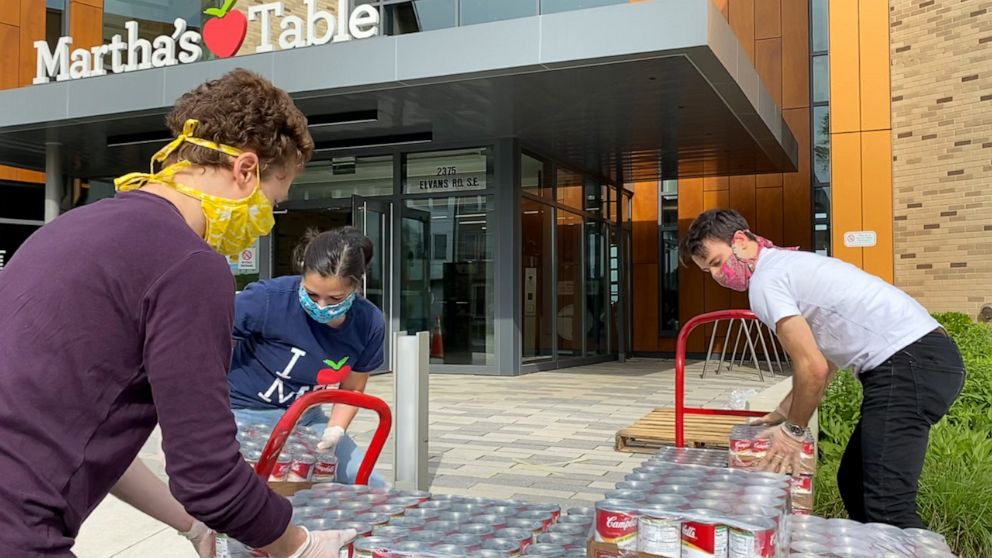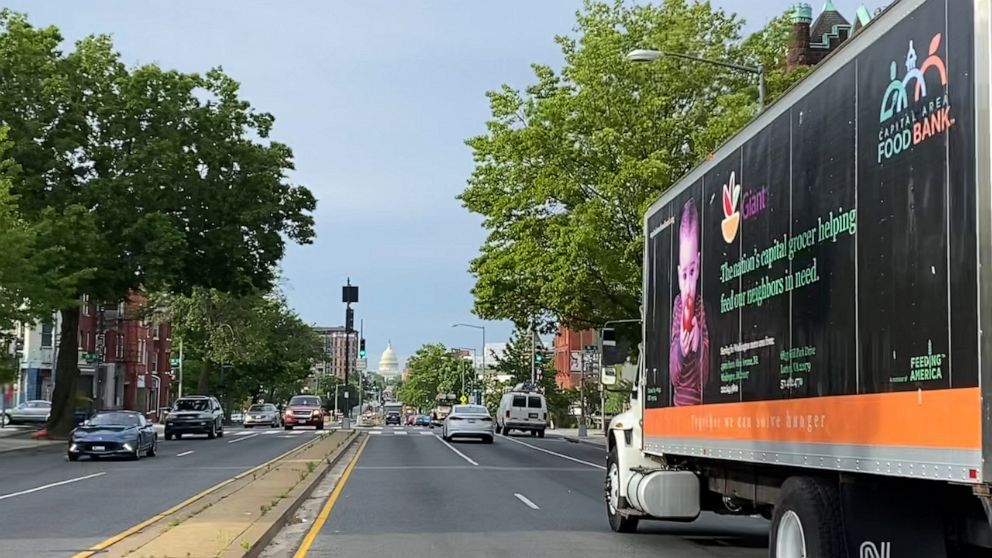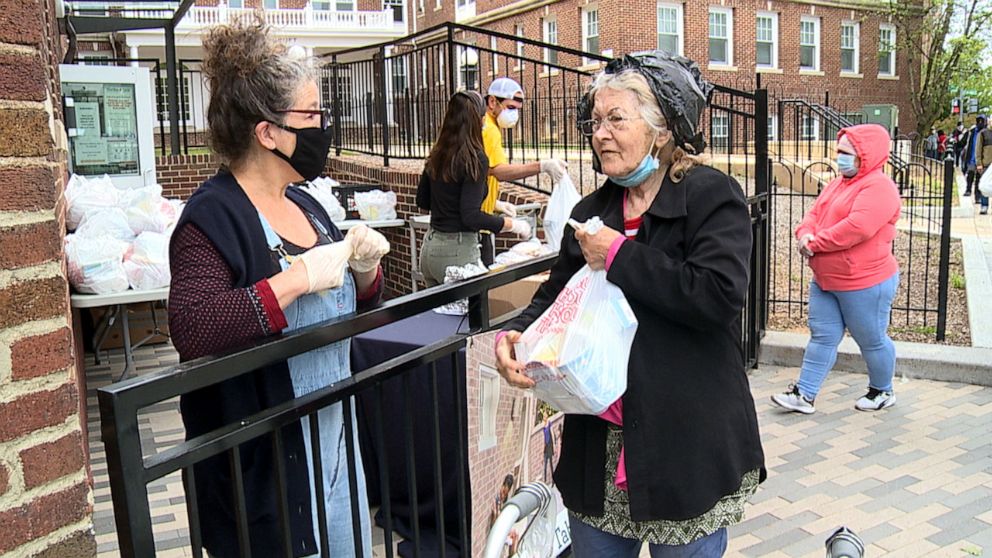District of Columbia residents band together to feed hungry during coronavirus
Capital Area Food Bank runs a 100,000-square-foot warehouse.
The logistics of getting even one can of pinto beans into the hands of a hungry family is no small feat, but an army of volunteers in the nation's capital is banding together to make it happen.
Those beans, and thousands of pounds of other food, often arrive via freight truck to the Capital Area Food Bank, which has seen skyrocketing demand over the last few months due to the COVID-19 pandemic.
"Nobody likes to ask for help to be able to put food on the table," Capital Area Food Bank CEO Radha Muthiah told ABC News, standing in the nonprofit's 100,000-square-foot warehouse in northeast Washington, D.C.
"But to put this in perspective, in the month of April, we purchased about 100 truckloads of food. And that is about three times what we purchased in the entire last year," she continued, as employees zoomed around her moving food pallets on fork lifts.

The food bank has also seen a rise in callers to its "Hunger Lifeline," where people can find out where to get food locally.
"People start by almost apologizing, you know, before they find out where they need to go to get food," said Muthiah. "Often people are saying, 'I'm sorry I have to call; I'm sorry that I need to avail myself of the food that you're providing. In fact, in the past, I may have been a donor to you, you know, or I volunteered with you, but I am in need now.'"
After the food bank receives pallets of donations, the group divides them up among partners like Martha's Table, a nonprofit in Washington that is helping to distribute the food directly to the individual. Before COVID-19, the organization was focused on education, creating healthy food options and job opportunities, but has since been forced to focus almost solely on community food needs.
Some volunteers, like 25-year-old Ian Yanusko, are taking advantage of their work-from-home schedules to help their neighbors.
"When COVID started, The Washington Post had a great article detailing different ways to get involved around the district," said Yanusko, "and that made me think about the privilege that I have and how I can best use this time when a lot of people are struggling economically.

Jason Tankersley retired just prior to the pandemic and was looking for a way to fill his free time while also giving back.
"I'm old enough to remember 9/11, and after 9/11, everything seemed to change," said Tankersley. "There was a real shift in public opinion, and, you know, the spirit of 'we're all in this together.'"
Martha's Table volunteers bring in the beans and other food, dividing it up into individual plastic bags. The bags are then transported back into a van and driven back to northeast D.C. to be handed out to the needy the next day.

Sequoya Pollard was a teacher at Martha's Table before the pandemic hit, but now oversees the distribution of food at the group's Maycroft location in Columbia Heights.
"The one thing that I do like about Martha's Table is that we help people where they are. A lot of times, people can have a job, go to school, have a career. Unfortunately, rent is so expensive in D.C. The one thing that someone might have to sacrifice is putting food on the table," said Pollard, as a bag containing the pinto beans is handed to a D.C. resident behind her.
"I hope that this whole COVID-19 really opens people's eyes to see that there are truly people out here who are hungry, who need food, who need help," she added.
"These people are our neighbors, they live right here in the city with us, and they're struggling."





